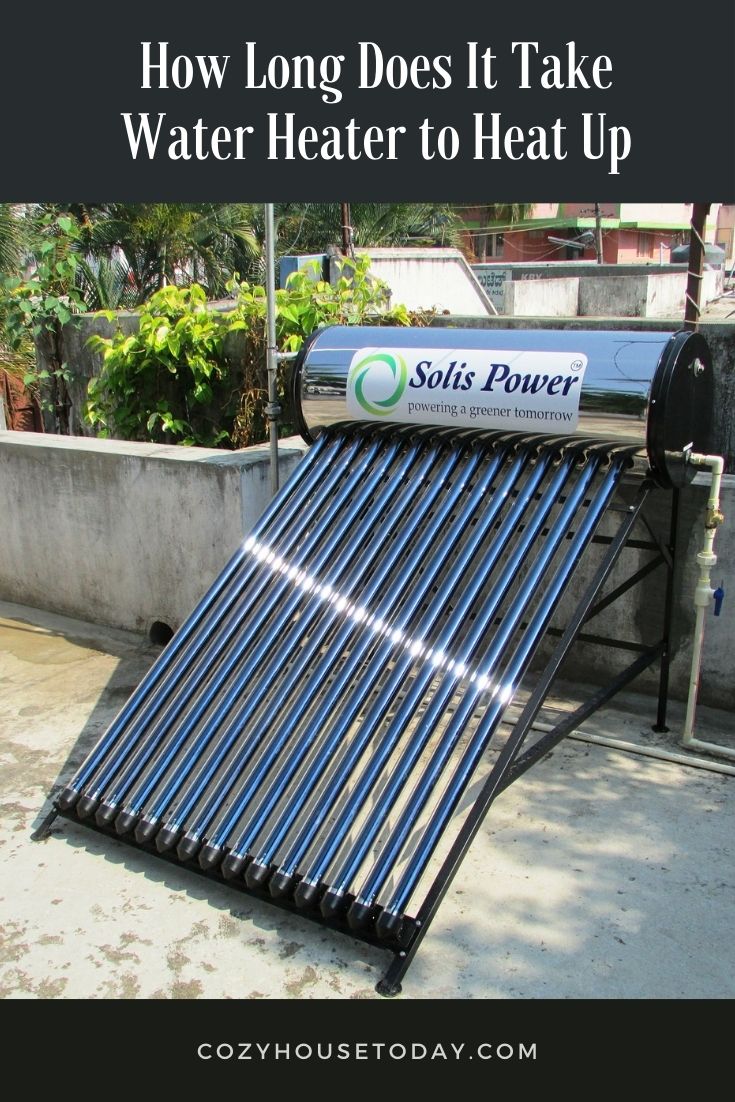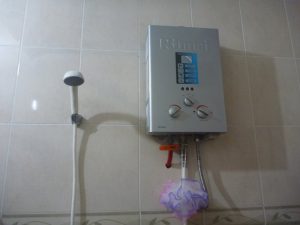 A cold shower in the morning? Oh, boy. No. Don’t even mention it.
A cold shower in the morning? Oh, boy. No. Don’t even mention it.
If your water heater has broken or you are simply searching for the new one, you need to know how much time you are going to wait before it can actually heat up the water.
This is one of the most important things while choosing a water heater if you want to find the best water heater that can supply you with hot water ASAP.
Luckily, you don’t have to spend tons of your time doing research and reading all the blog posts on the web. This article will definitely answer your question, “How long does it take a water heater to heat up?”
Of course, if you’d like to use a lot of hot water within a short period of time, you need to consider a more effective water heater that can heat up water for you in the blink of the eye.
There are many different factors that can have an impact on the time needed for a heater to warm up the water (we’ll discuss them in detail in one of the sections below). Obviously, it depends on the type of heater that you are going to use.
Let’s review each water heater type in detail so that you can get a clear picture of how they work and which one is going to be the best choice for you.
Gas Water Heater
Many prefer to use a gas water heater. There are several reasons for this. First of all, a gas water heater allows you to save on energy bills. A gas boiler is a very powerful heater that heats up water really quickly.

Via: @authorizedariston
For example, it can warm up the whole tank with 40 gallons of water in 30 minutes. And if the tank is bigger (80 gallons), it can take up to 1 hour to heat it up.
Another great benefit of a gas water heater is fast recovery time. Unlike electric water heaters, a gas water heater doesn’t use electric elements that take some time to recover.
For example, you need to make sure that your bathroom is well aired if you’d like to install a gas water heater there. And you always need to use it very carefully to make sure there is no gas leakage.
Electric Water Heater
This type of water heater is not that powerful in comparison with gas water heaters. However, an electric water heater is better in terms of safety. The recovery time is almost 2 times bigger than in gas heaters.
For example, it takes approximately 1 hour to heat up a tank with 40 gallons of water. And if you’d like to heat up a tank with 80 gallons of water, be ready to wait for approximately 2 hours.
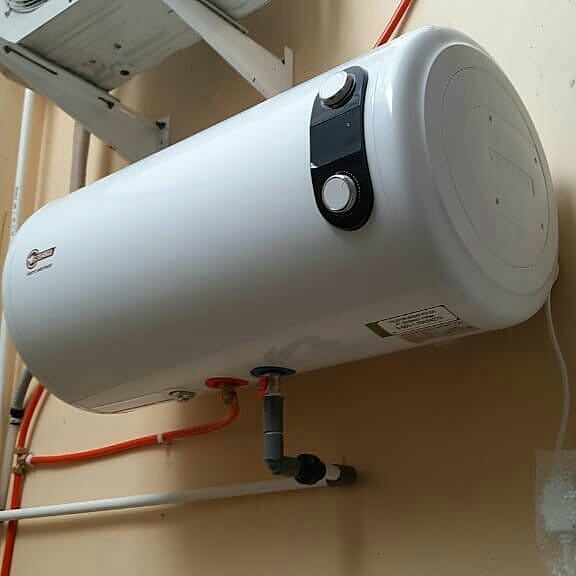
Via: @waterheaterjambi
Typically, an electric water heater can be a great fit for small houses and homes where water demands are not that high.
Solar Water Heater
This type of water heater functions thanks to solar energy. This is a great choice in terms of green energy and eco-friendliness.
However, one of its disadvantages is that you can’t use it at any time you want, only when the sun heats it up. This is the reason why it is usually used in tandem with an electrical water heater.
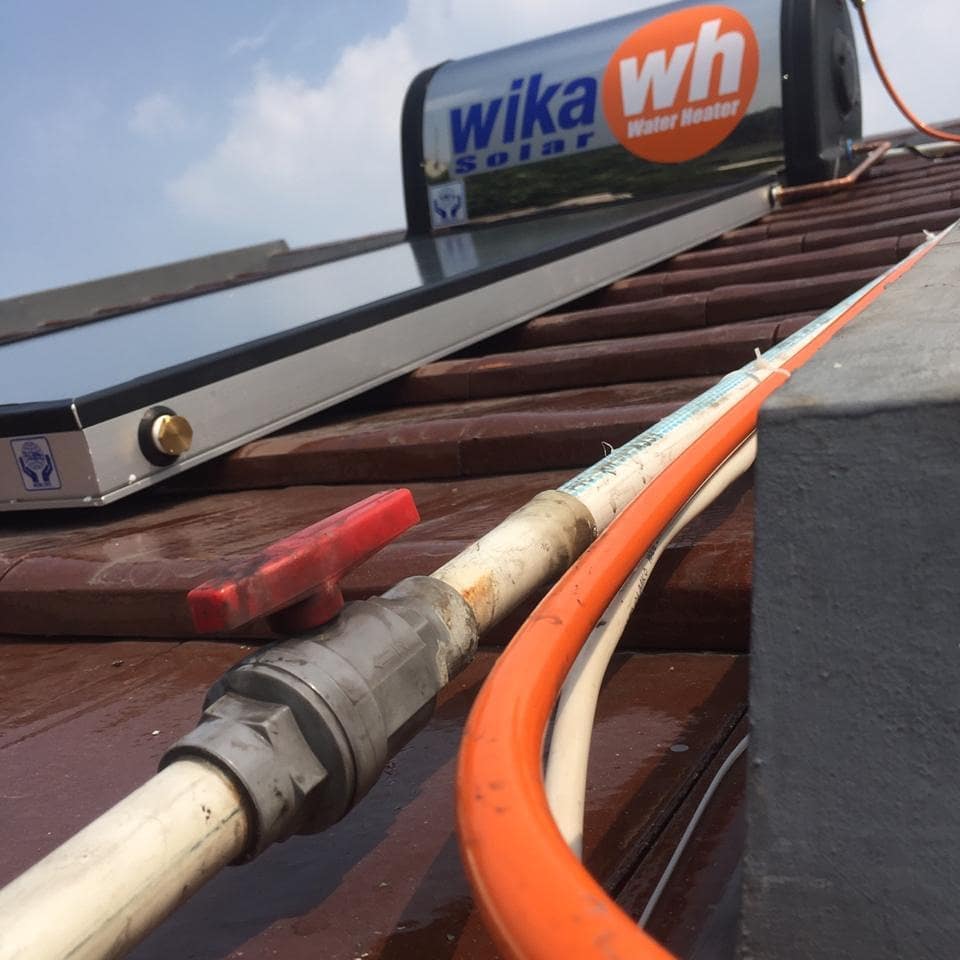
Via: @marketing_wika
Of course, the time of heating up the water is going to depend heavily on the sun. If the weather is good and the sun shines brightly, your water is going to be heated quicker.
However, if it’s a gloomy or a rainy day, you may be out of hot water if you rely solely on your solar water heater.
A Tankless Water Heater
This type of water heater can supply you with hot water really fast. There is no tank. You don’t need to wait for the water to heat up. Hot water is going to enter on your demand whenever you want.
It means that you don’t have to wait for minutes or even hours to get hot water. You are going to get it in seconds, maximum in 1 minute.

Via: @robyns__nest__
Heat Pump or Hybrid Water Heater
This type of water heater is basically a modified and improved version of an electric water heater. It doesn’t generate heat directly. It leverages incoming electricity to make the heat go round.
This way, a heat pump water heater results in better efficiency in comparison with an ordinary electric water heater.
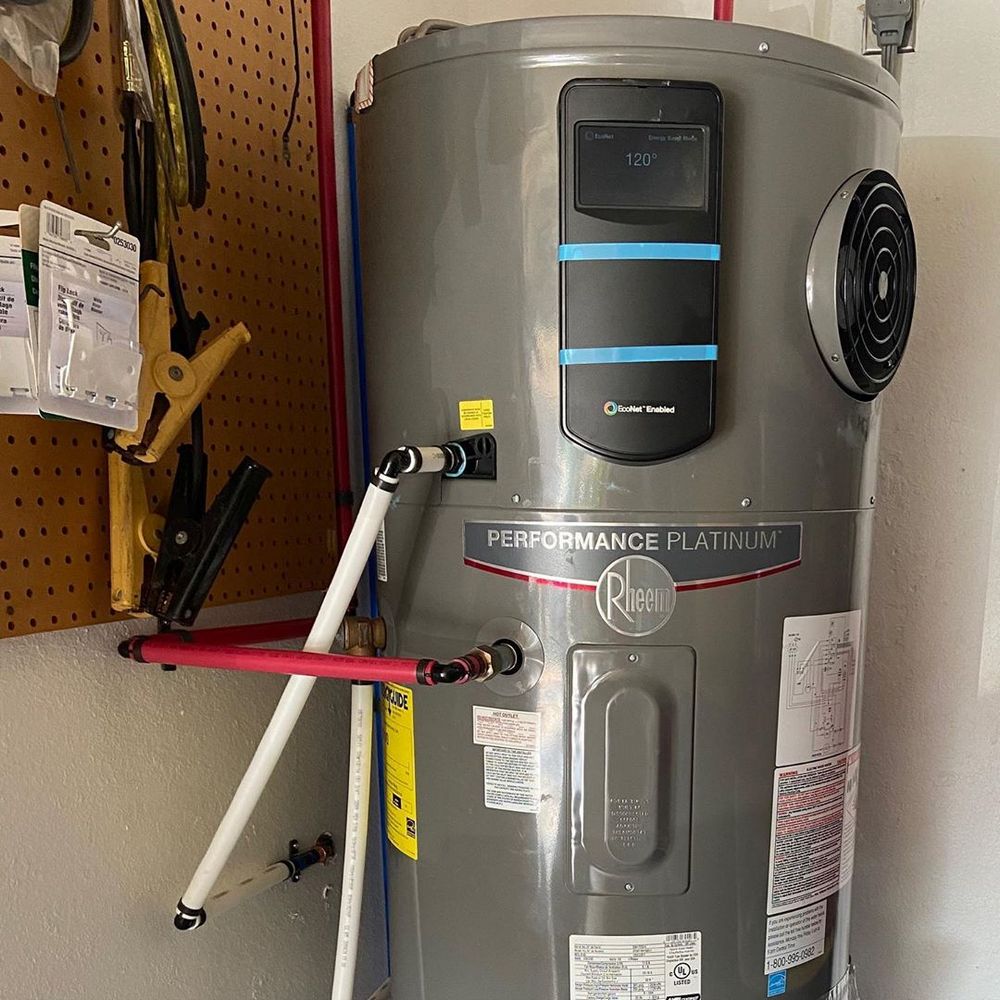
Via: @solargirltx
That being said, it can decrease the wait time in half in comparison with an average electric water heater. So instead of 2 hours, you can wait 1 hour for hot water.
Top 4 Factors That Have the Biggest Impact on Heating Time
In descriptions of water heaters, we’ve mentioned the estimated time of heating up water. However, you need to take into account that this time can be modified, depending on various factors. Let us reveal some of them to you below.
- Type of a water heater. The type of water heater has a big impact on the time of heating up water. Typically, a tankless water heater is the fastest. Then comes a gas water heater. A hybrid water heater ranks #3 on our list in terms of speed. Then comes an electric water heater. A solar water heater is the slowest.
- Size of a water heater. Obviously, the bigger the size of the tank, the more time it is going to take to heat it up. However, smaller tanks don’t mean to be the best option as, on the other hand, you are going to run out of hot water faster, using smaller tanks. This is something that you should consider, as well.
- Initial temperature of the water. In different areas or states, the initial temperature of the water that comes into a heater may vary. Of course, the higher the temperature of the inlet water, the sooner you are going to get it warmed up.
- First-hour rating. This is the indicator that shows you how many gallons of hot water you can expect to get from your water heater within 1 hour. The higher first-hour rating a water heater has, the faster it is going to work. This indicator depends on the size of burners or heating elements, the capacity of the tank, and the type of a water heater.
Hopefully, now you are well-versed in various types of water heaters and know the answer to the question, “How long does it take a water heater to heat up?”
